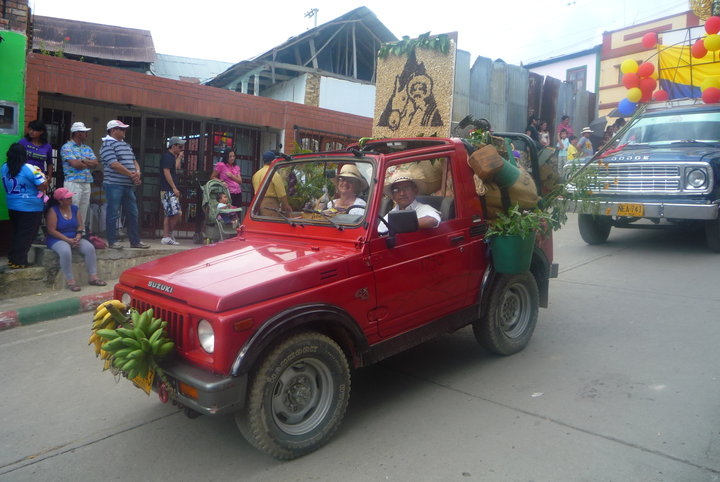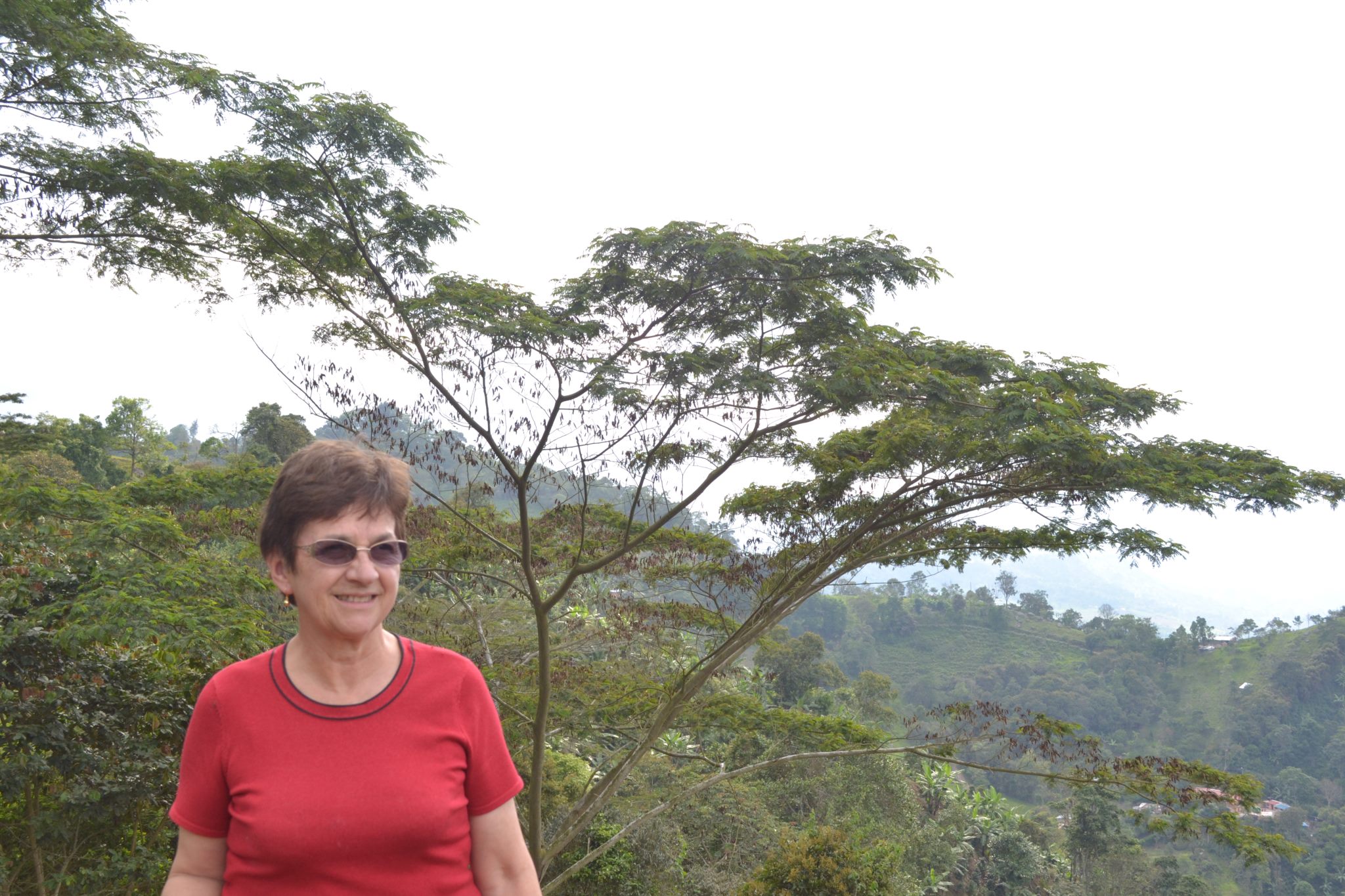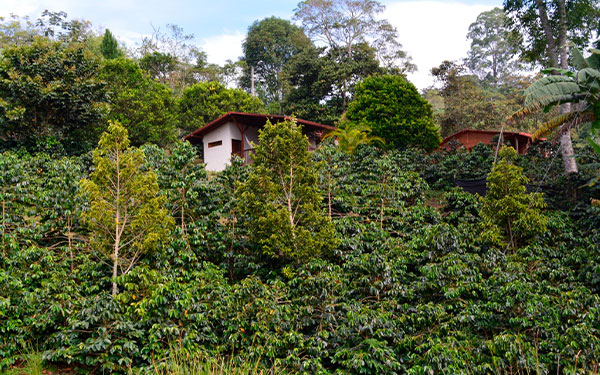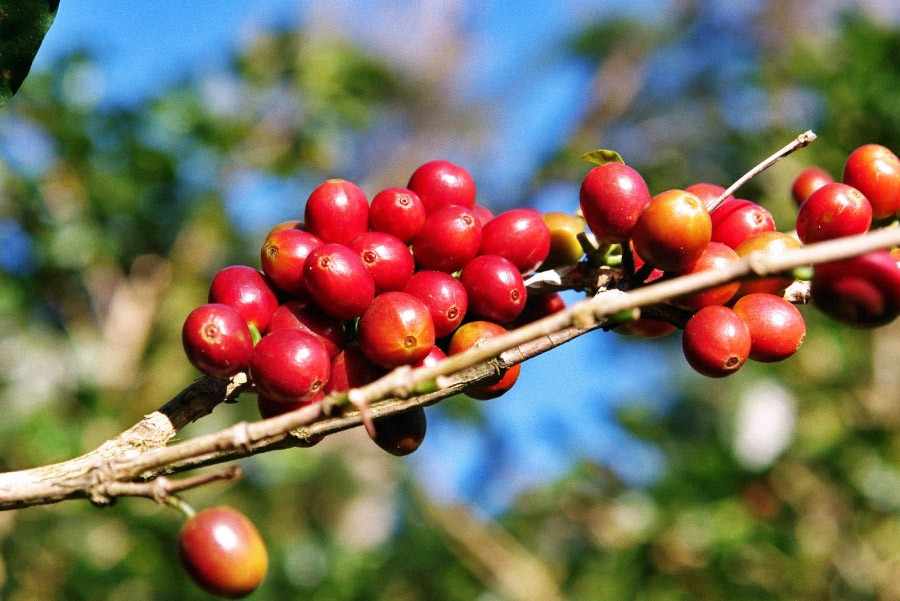Specialty green coffee lot: Gesha Washed
Olga and Guillermo focus on the cultivation of the Gesha variety based on the principles of agroecology and organic production.
| Region | Cundinamarca |
|---|---|
| Availability | SPOT |
| Processing | Washed |
| Notes | Floral |
| Farming | Reduced PesticidesDeforestation-freeShade-grownFamily farmOrganic |
| Cultivar | Gesha |
| Altitude | 1750 masl |
| Bag Size | 15 |
| Packaging | Hermetic/GrainPro |
| Drying | Sun-dried - Marquesina |
- Get to know who, how and where the coffee that you will sell to your clients is produced. Each coffee goes through a unique process, many times engineered by the producer herself. Acquire the coffee in a direct and consistent manner and praise the value created at the farm.
- Buying without the unnecessary intermediaries allows the producer to obtain better prices. This helps generate better jobs and more prosperous rural communities.
- When you buy pre-harvest you allow the producer to produce on demand at an agreed price. This is the most powerful way to motivate investment in quality. In addition, you indirectly support producers to get financing at a lower cost.
- Support producers who strive for implementing environmentally friendly cultivation practices. It requires a lot of effort and higher costs to protect the environment and put in practice cleaner ways of farming. Support a more environmentally sustainable industry and communicate this to your customers.
- Specially crafted coffee is not easily available as the big chunk of volume is pulled by commercial coffee, which is often institutionally protected. Therefore, buying crafted coffee is a great option to reward those risk-taking, innovative and revolutionary producers that are committed to conscious and quality consumption.

You must be logged in order to visualize the details of this coffee.

Terroir: Cundinamarca
Cundinamarca is located in the center of Colombia and coffee production is concentrated on the slopes of the eastern mountain range characterized by altitudes of 1400 to 1800 meters, annual rainfall of 1,900 - 2,400 mm that decreases from December to February and from June to August and soils with a high volcanic content with a PH of 4.5 to 5.5 of low fertility but highly receptive.
The coffee growers of Cundinamarca encourage, promote and execute a coffee production that does not exceed productive capacities and comply with economic, environmental and social conditions for responsible consumption. In order to achieve this, they conserve ancestral practices of caring for the land and combine it with small innovations in the processing and/or benefit of the bean. It is very common to find honeys, natural and/or fermented coffees in this region.
In the Sumapaz region, coffee grows under the shade of native trees that provide refuge to close to 300 species of birds, of which 25 are migratory birds that arrive to the coffee plantations during October and November flying from North America, remain in the department for more than five months and, between March and April, begin their return journey. This shaded coffee cultivation has the support of several organizations and the coffee growers themselves that work for the conservation of the species.
- Altitude (masl) 1200-1780
- Sunshine (hours/year) 1160-1590
- Annual rainfall (mm) 1600-1920
- Thermal Weather (cumulative stages 2 and 3) 2440-2800

Cultivar: Gesha
The Gesha variety originally comes from the Ethiopian Gori Gesha forest, the first Gesha plants were originally collected in Ethiopia in the 1930s. The variety eventually landed at the Tropical Agricultural Research and Higher Education Centre (CATIE) in Costa Rica in the 1950s, and in the 1960s a Panamanian government official came to CATIE looking for new coffee varieties to try growing in the country. From there, the now legendary and famous story of the Panamanian Gesha was created.
The terms Gesha and Geisha are used interchangeably, in connection with the fact that there is no established translation of the Ethiopian dialects into English. Coffee was first recorded in germplasm records with the spelling "Geisha", and coffee researchers and germplasm banks have maintained the spelling for many decades, leading to its first promotion and use in the coffee industry.
Coffee was originally harvested in Ethiopia in a region near a mountain whose name is commonly translated in English as Gesha. Consequently, many in the coffee industry have preferred to rescue that spelling. In the cup they are renowned for citrus notes, extreme sweetness and floral elements. Their quality potential is excellent when produced at good altitude in very well fertilised soil.
